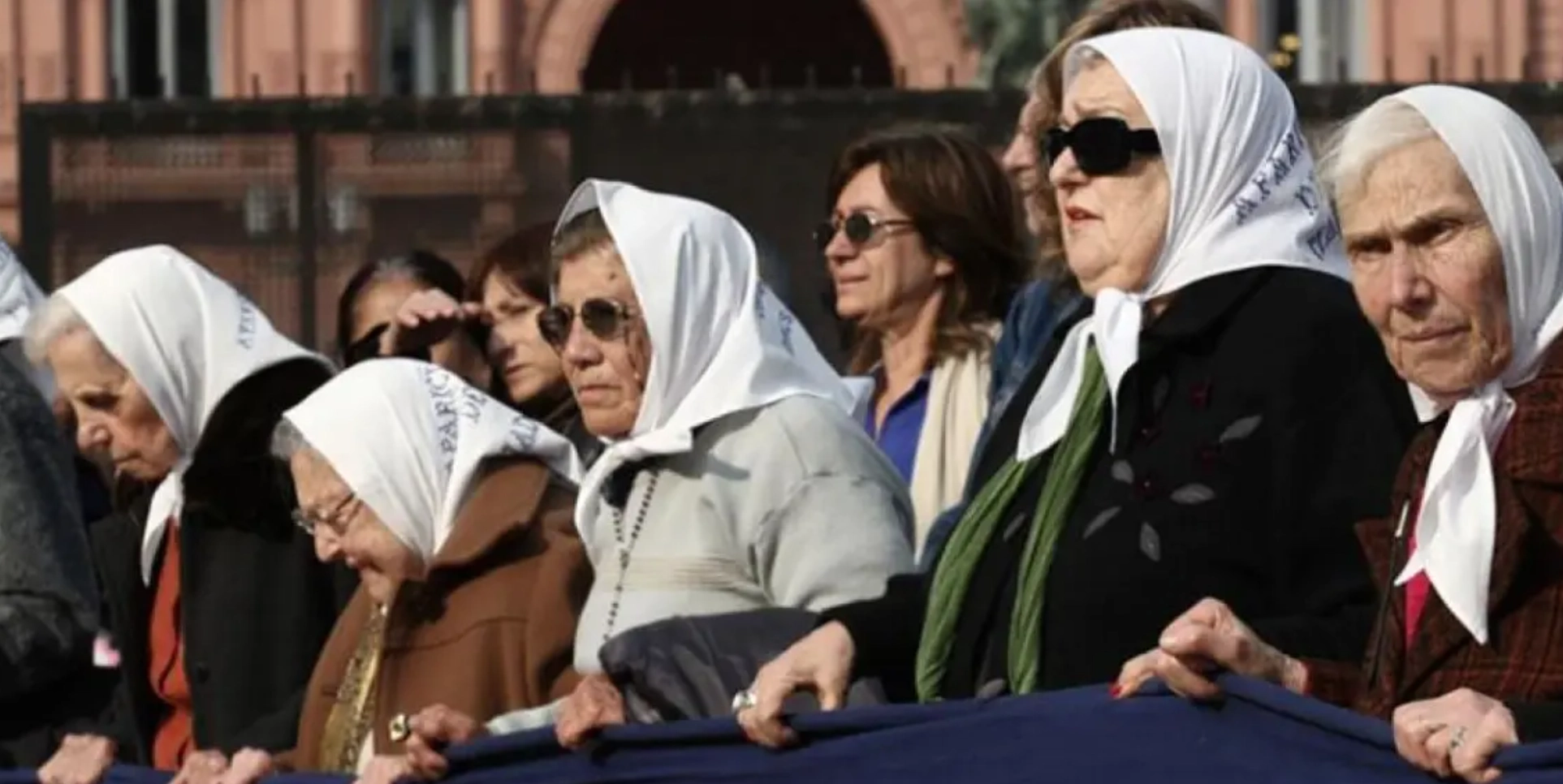In March 2023, the Mothers of the Plaza de Mayo marched on the 40th anniversary of the end of the Argentine dictatorship. They emphasize that the event was a “march,” not a “round,” as it was popularly defined. Language matters in this and many other cases, and it is a powerful tool for protecting human rights.
Mothers of the Plaza de Mayo are the most well-known organization within and outside the country, and the initial moments of their organization coincide with the darkest times of the Argentine dictatorship. “We don’t want to call it a ’round’ when we call it a march because going in circles is going around the same thing, but marching is moving forward while doing something,” they say.
We can highlight the performative characteristic of the “march,” in line with language analyses discussed in early works like those of J. L. Austin and H. Pitkin on the subject of “performative utterances.” The point to emphasize here takes on the contours of the struggle for the realization of human rights, for the disappeared, against the impunity of officials who committed injustices. Thus, this becomes a relevant language repertoire used in the case of all subsequent movements in Latin America (up to the present day).
Mothers of the Plaza de Mayo is an organization that was created in the late 1970s and carried out a series of actions with the goal of finding and identifying the children abducted during the last Argentine military dictatorship. According to researcher Rita Duarte, the children who were not killed were given up for adoption through processes marked by illegality and violence. Building upon the initial organization, the Abuelas (Grandmothers) was formed in 1994, one of the most active organizations today.
And next is H.I.J.O.S. This organization is based on new repertoires and actions known as “escraches,” which are public and noisy denunciations against known torturers and murderers who remain free.
The dispute in the Argentine political scene demands a revisiting of history and constantly strives for reparation, with no forgetting and an end to impunity as its foundations. In all cases, the struggle of these women is part of the public scene. In archives, on the streets, in national congresses, in schools—wherever they are called—they lead their demands and reiterate the right to memory for their deceased/disappeared, and particularly for the political responsibility of states in relation to these crimes.
The Paradox of Amnesty
In Brazil, the end of the dictatorship is framed by the paradox of amnesty and the 1988 Constitution. The governments that followed the transition faced complex situations in defining, elaborating, and employing rights through public policies. In the case of social movements, in addition to their connection with the promotion and defense of public policy agendas, processes of memory, truth, and reparation have also taken place in the country.
If we consider the dictatorships in Brazil and Argentina, for example, the movie Argentina, 1985 is timely and came at a good moment in 2022, when Brazil’s most challenging elections in the history of its redemocratization were surrounded by threats of a military coup. The then-president categorically stated that he did not trust the elections in the same country that elected him in 2018. This antidemocratic attitude would have disastrous effects, as demonstrated by events ranging from the bomb threat on Christmas Eve to the invasion of the headquarters of all three branches of the State.
Considering the histories of both countries, the trial of military personnel involved in state crimes ties together Brazil’s past of amnesty (and impunity for military and police) and Argentina’s democratic stability (despite the severe economic crisis). A concrete result of this comparison is the realization that there is no mention of the phrase “a good criminal is a dead criminal,” which we have seen in recent times in Brazil, in the language used by present-day presidential candidates in Argentina. Unfortunately, the arrival of Javier Milei and his use of expressions such as “tremble you fucking lefties”, no longer allow us to speak of the exceptionality of the latter country.
The trial depicted in the movie pays special attention to the narratives of the victims: the family members who, despite the immense and irreparable loss of their loved ones, bring their struggle for truth, justice, reparation, and the non-repetition of state crimes against citizens into the public sphere. Additionally, what occurred in the neighboring country, unprecedented in Latin America, can be compared to the Nuremberg Trials, as it brought to the international public stage a crucial issue of how to treat those who intend to kill, torture, and exterminate because they “follow orders.”
Impunity as a Threat
The importance of the military aspect in Germany, Brazil, and Argentina is darkly intertwined with the persistence of supporters of Nazism and state violence in our times. The language of human rights teaches us that the impunity of state agents is one of the main factors threatening democracies. This is confirmed not only in victim accounts and movements but also in documents and Truth Commissions. In 2022 alone, 6,429 people died as a result of police interventions, according to the Brazilian Public Security Yearbook.
We are witnessing an increase in the lethality of police action in recent years and also a growth in the number of women engaging politically against violations caused by the state. Thus, according to political scientist Débora Quintela, it is plausible to predict that if there are no changes in terms of public security in Brazil’s major cities (and the current idea is that institutional violence will only increase), the movement of mothers of victims of police violence will expand and solidify as a collective action. Unfortunately, with each new victim, we also have a new grieving mother, a potential activist.
Understanding the issue of rights as a historical process that is in dispute within national political arenas and their international interfaces can help us better understand national dynamics and their points of intersection. Investigating abuses, seeking truth, honoring the memory of victims, and preventing the repetition of violence are ways to cultivate democratic values in society.
Let us be attentive to the language used, to the speech acts of mothers and loved ones mourning their losses and seeking justice. The advocacy of human rights is relevant for its understanding of collective demands in politics, for promoting justice for those who have suffered or continue to suffer injustices, for recovering memory, truth, justice, and the non-repetition of rights violations.
*Translated by Ricardo Aceves from a Spanish version of the original in Portuguese.












